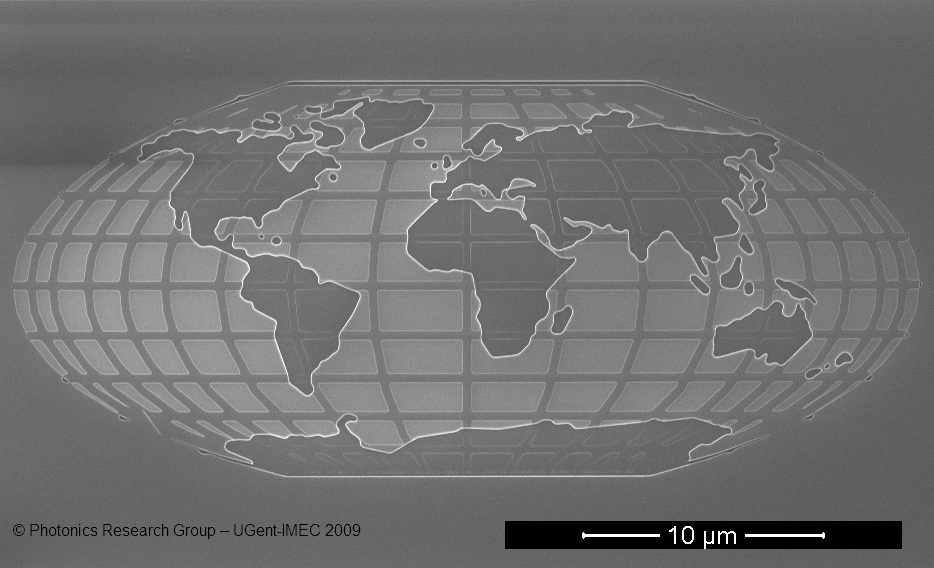
Take the length of the equator on the map above, double that distance and you have the width of a human hair. For this is the world’s smallest world map, with the 40,000 kilometre-long equator reduced to a mere 40 micrometres.The smallest features on the map, corresponding to 100 kilometres, are about 100 nanometres wide.

The map was created by the Photonics Research Group at Ghent University in Belgium, and embedded in an optical silicon chip[above]. Miniaturisation on this scale (one trillionth [*], to be exact) will enable optical technology with a million times more components than in present-day, glass-based photonics, and opens the door to nanophotonic applications in consumer electronics[but, of course!], medical imaging, and telecommunications.
*: The factor of 1 trillion (1.000.000.000.000) is expressed by the prefix tera- (as in terabyte or teraflop)
Learn more...
*: The factor of 1 trillion (1.000.000.000.000) is expressed by the prefix tera- (as in terabyte or teraflop)







.png)





No comments:
Post a Comment